Concept Development © 2011 by The Johns Hopkins

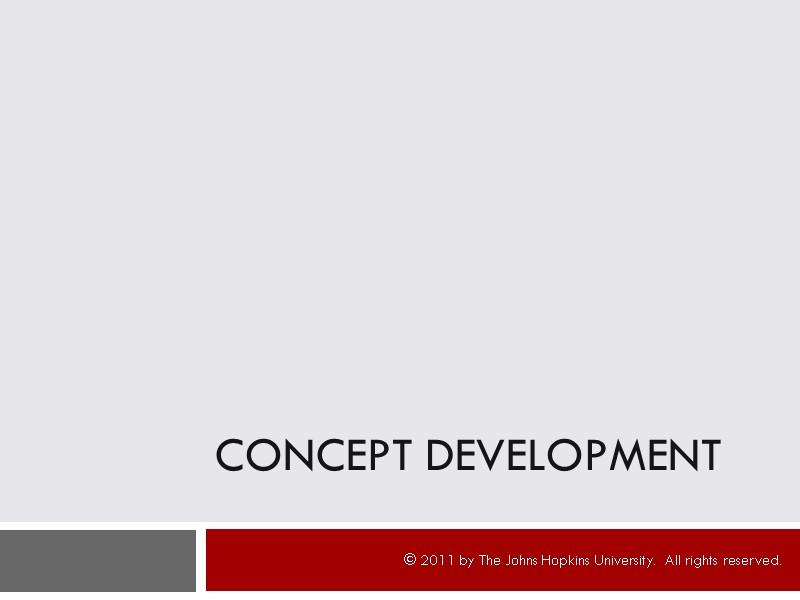
Concept Development © 2011 by The Johns Hopkins University. All rights reserved.
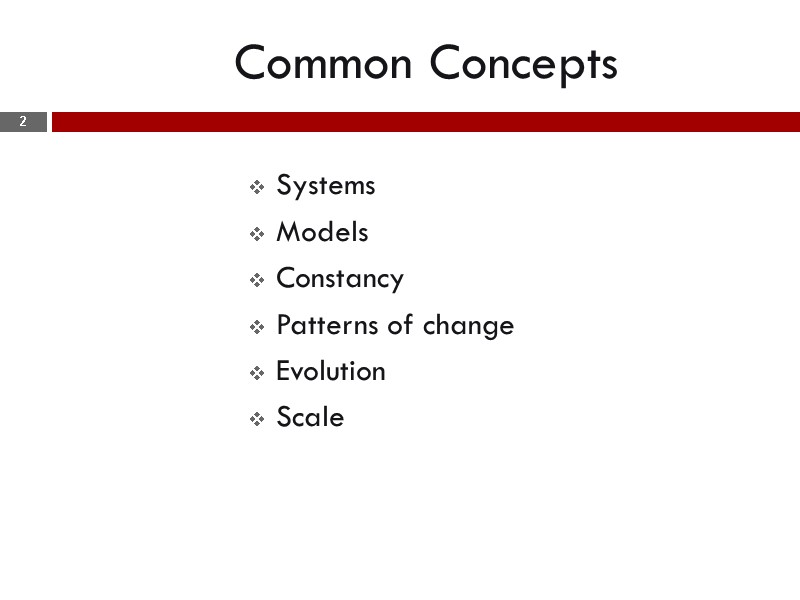
Common Concepts Systems Models Constancy Patterns of change Evolution Scale 2
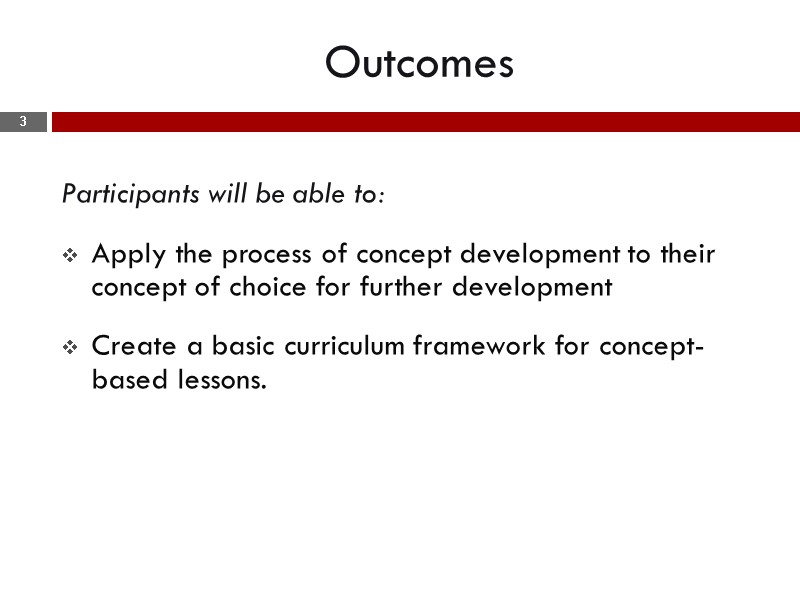
Participants will be able to: Apply the process of concept development to their concept of choice for further development Create a basic curriculum framework for concept-based lessons. 3 Outcomes
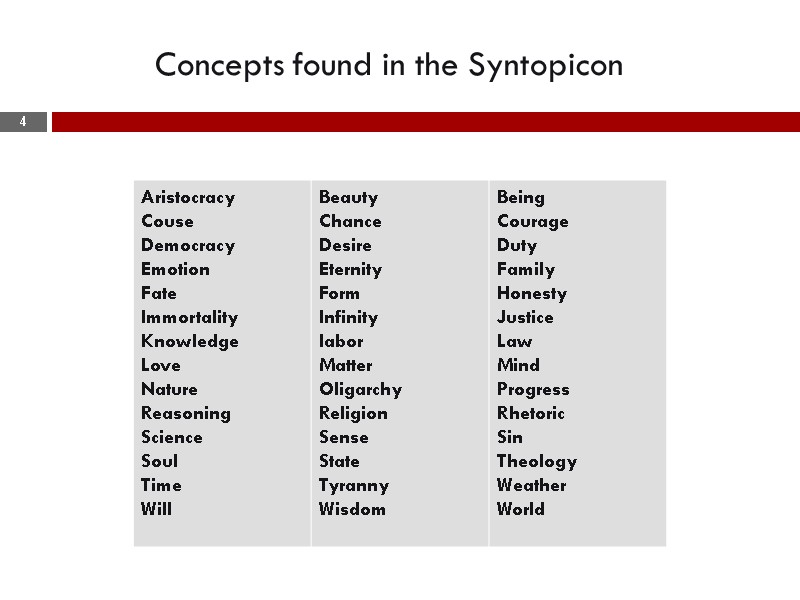
Concepts found in the Syntopicon 4
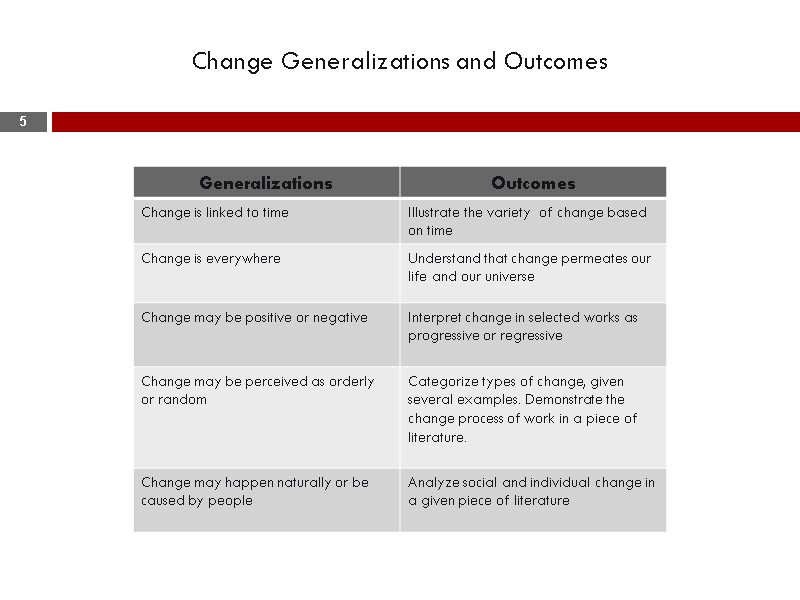
Change Generalizations and Outcomes 5
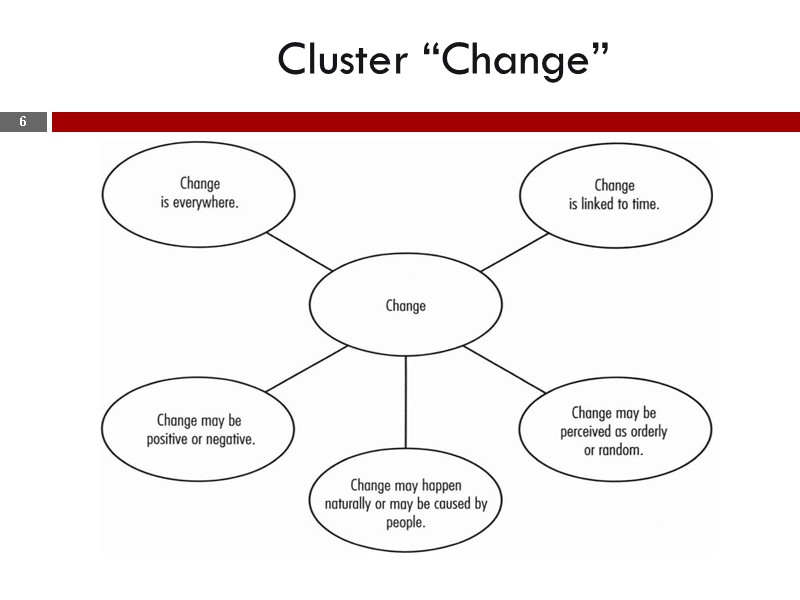
Cluster “Change” 6
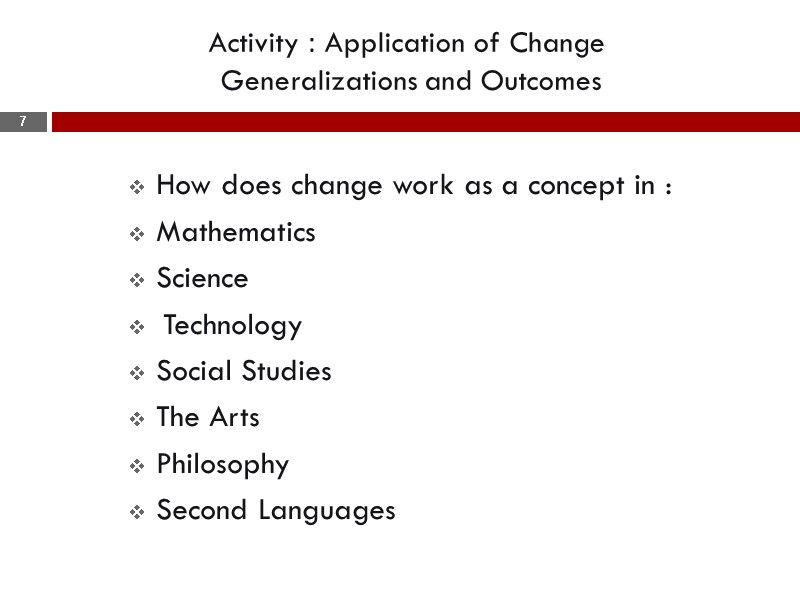
Activity : Application of Change Generalizations and Outcomes How does change work as a concept in : Mathematics Science Technology Social Studies The Arts Philosophy Second Languages 7
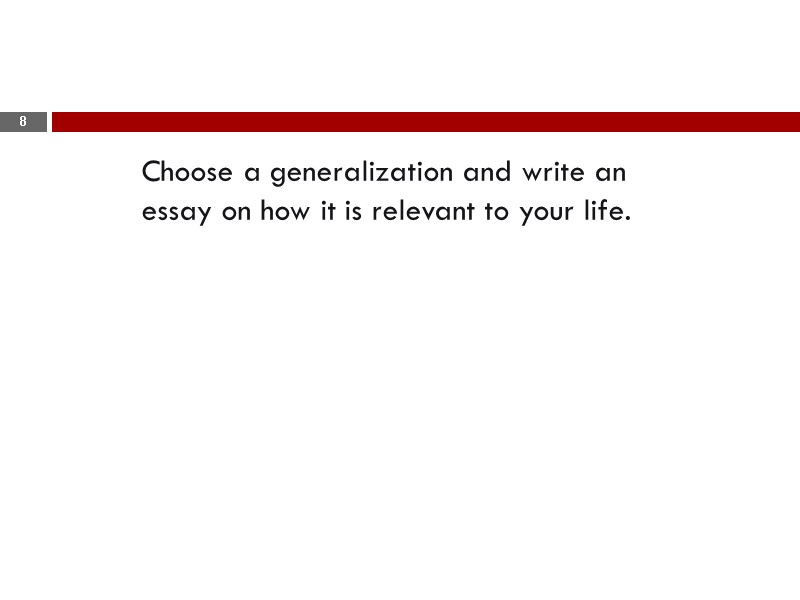
Choose a generalization and write an essay on how it is relevant to your life. 8
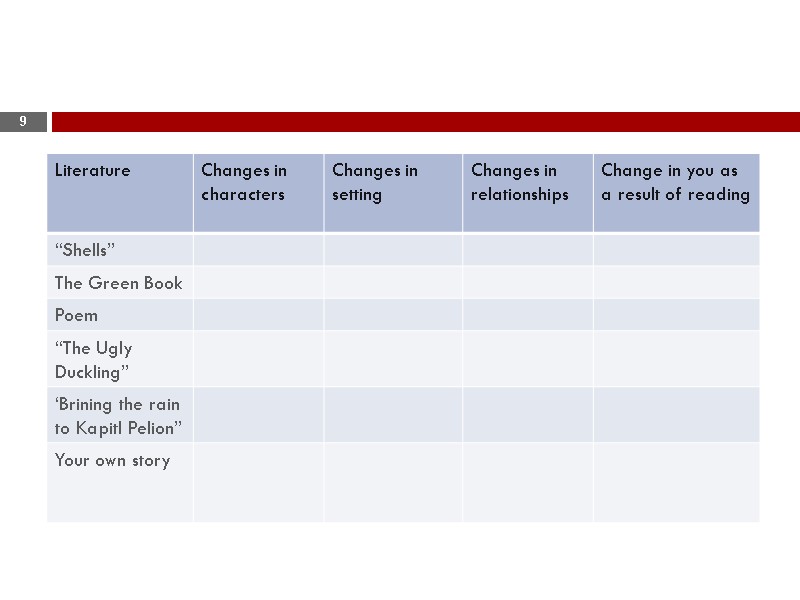
9
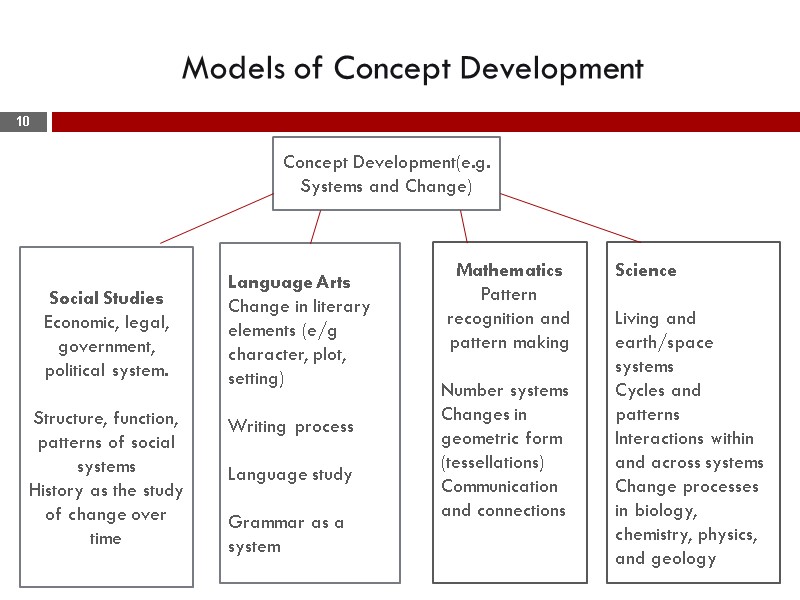
Models of Concept Development 10 Concept Development(e.g. Systems and Change) Social Studies Economic, legal, government, political system. Structure, function, patterns of social systems History as the study of change over time Language Arts Change in literary elements (e/g character, plot, setting) Writing process Language study Grammar as a system Mathematics Pattern recognition and pattern making Number systems Changes in geometric form (tessellations) Communication and connections Science Living and earth/space systems Cycles and patterns Interactions within and across systems Change processes in biology, chemistry, physics, and geology
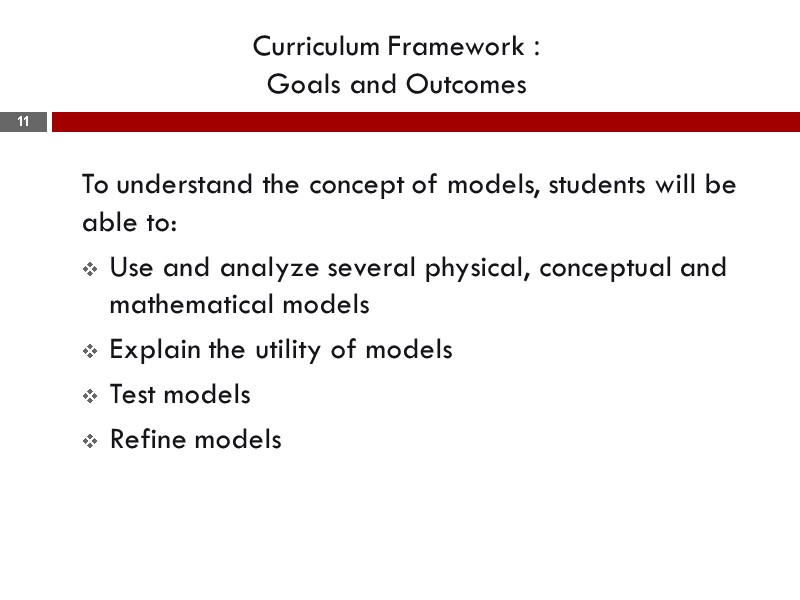
Curriculum Framework : Goals and Outcomes To understand the concept of models, students will be able to: Use and analyze several physical, conceptual and mathematical models Explain the utility of models Test models Refine models 11
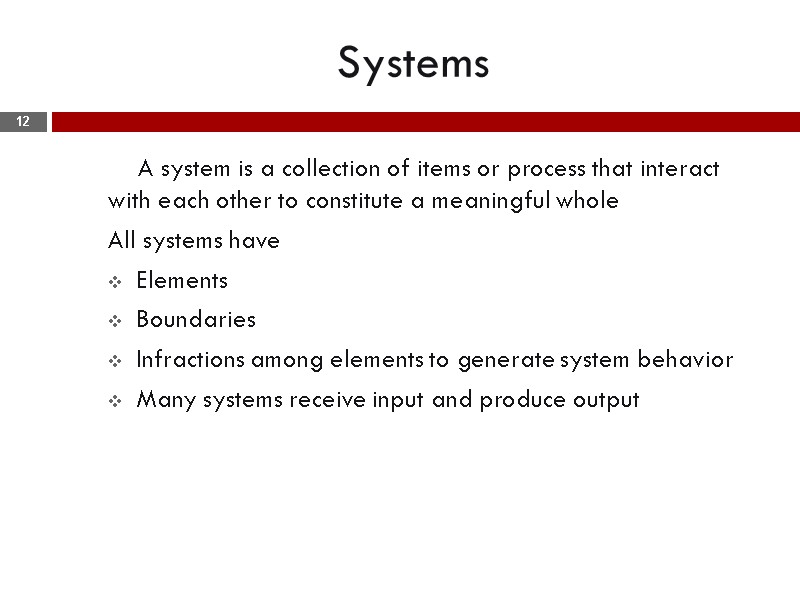
Systems A system is a collection of items or process that interact with each other to constitute a meaningful whole All systems have Elements Boundaries Infractions among elements to generate system behavior Many systems receive input and produce output 12
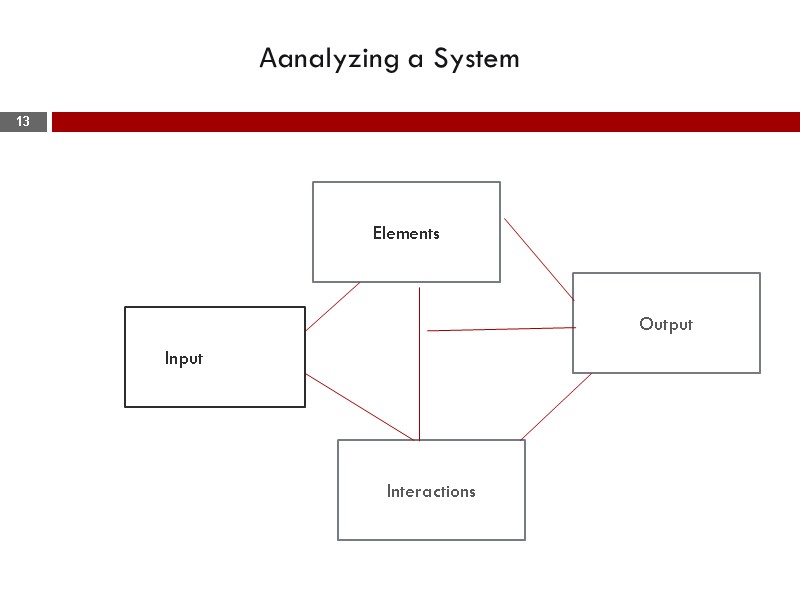
Аanalyzing a System 13 ВлнInput Elements Interactions Output
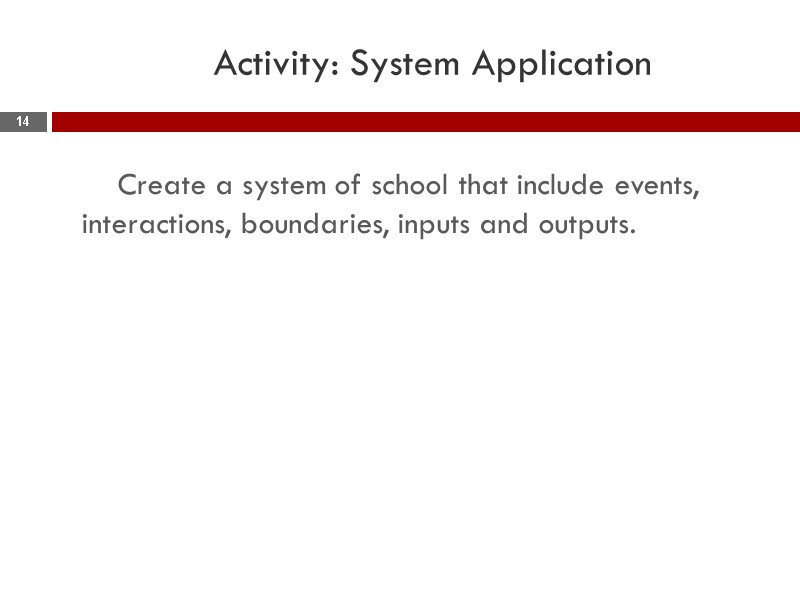
Activity: System Application Create a system of school that include events, interactions, boundaries, inputs and outputs. 14
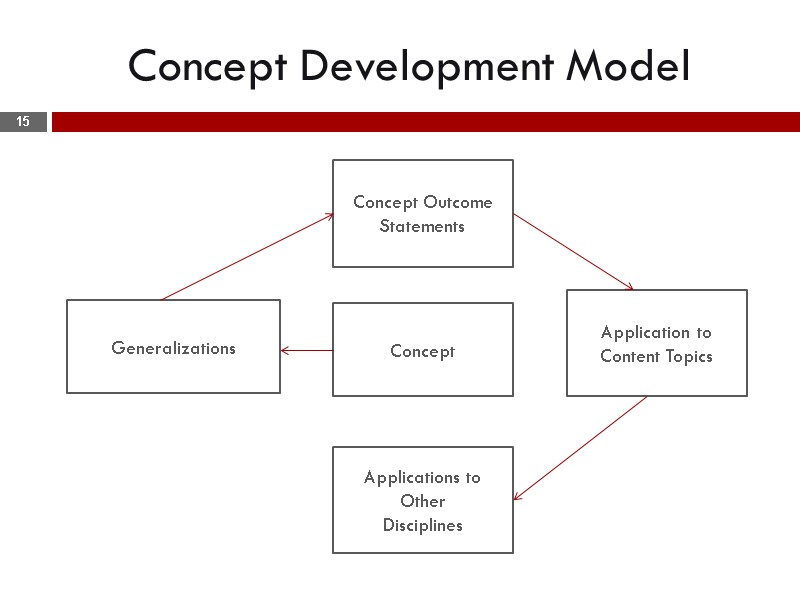
Concept Development Model 15 Concept Outcome Statements Concept Applications to Other Disciplines Application to Content Topics Generalizations
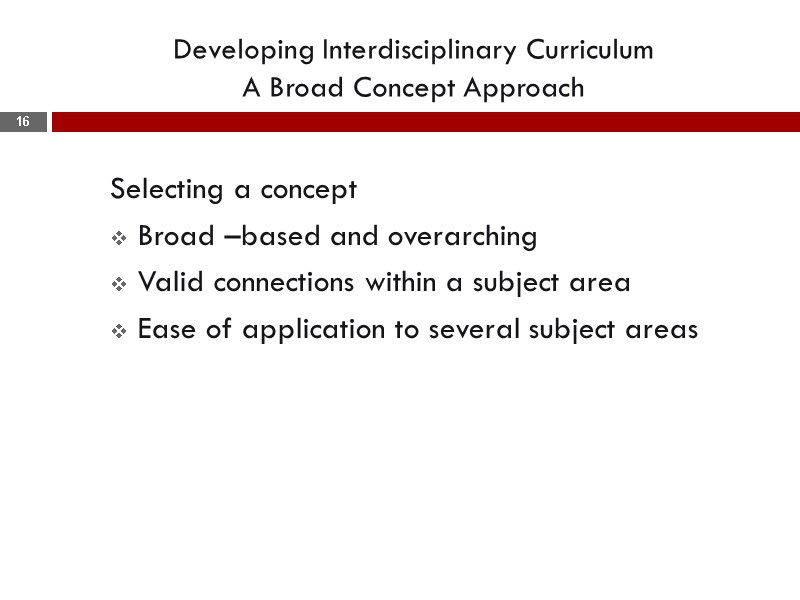
Developing Interdisciplinary Curriculum A Broad Concept Approach Selecting a concept Broad –based and overarching Valid connections within a subject area Ease of application to several subject areas 16
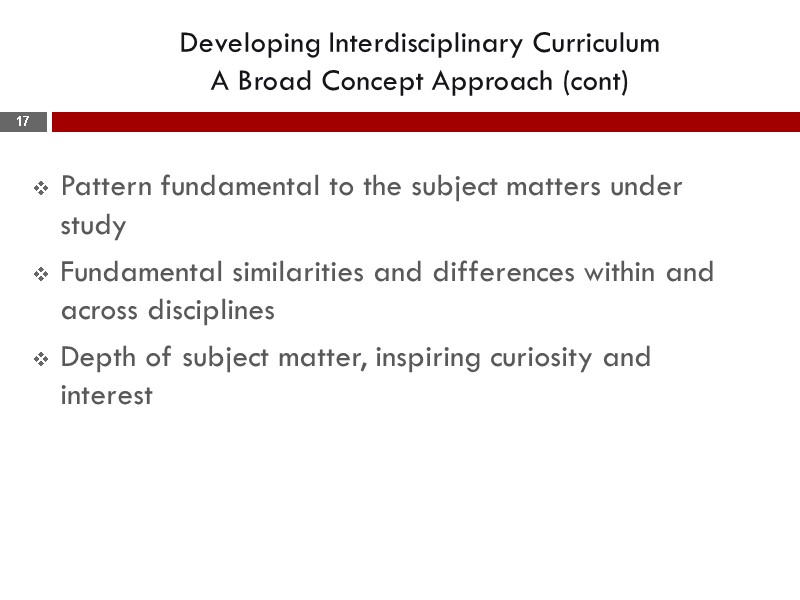
Developing Interdisciplinary Curriculum A Broad Concept Approach (cont) Pattern fundamental to the subject matters under study Fundamental similarities and differences within and across disciplines Depth of subject matter, inspiring curiosity and interest 17
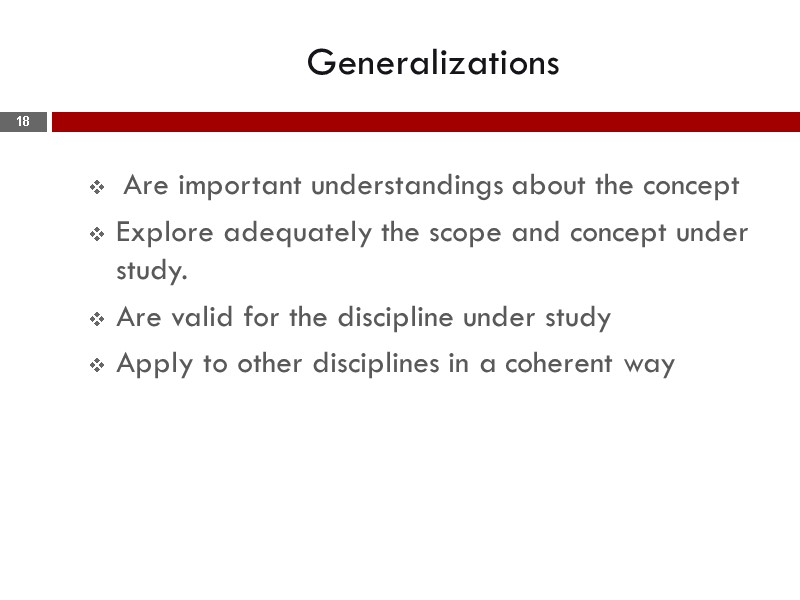
Generalizations Are important understandings about the concept Explore adequately the scope and concept under study. Are valid for the discipline under study Apply to other disciplines in a coherent way 18
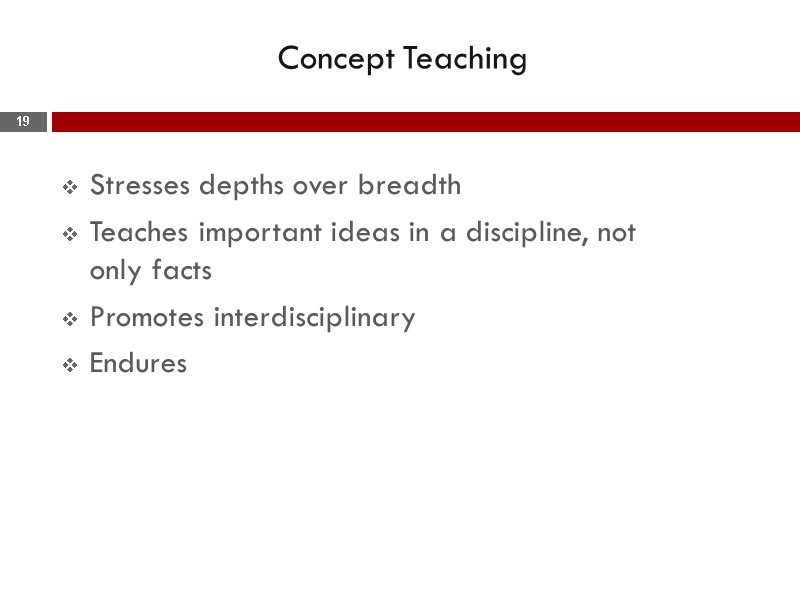
Concept Teaching Stresses depths over breadth Teaches important ideas in a discipline, not only facts Promotes interdisciplinary Endures 19
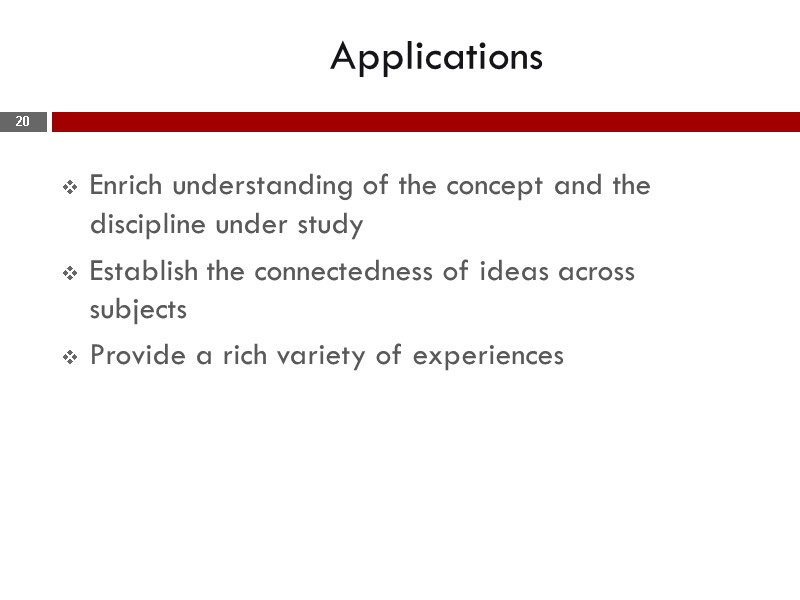
Applications Enrich understanding of the concept and the discipline under study Establish the connectedness of ideas across subjects Provide a rich variety of experiences 20
34712-level_2_theme_2_concept_development.ppt
- Количество слайдов: 20

